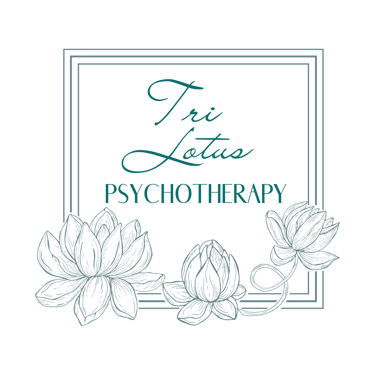NOW ACCEPTING NEW CLIENTS: In-Person in Calgary & Online across Alberta Book a Free 20min Introductory Call! CLIENT LOGIN


Trauma Therapy
IN-PERSON IN CALGARY & ONLINE ACROSS ALBERTA
Compassionate Trauma-informed, EMDR and IFS therapy to help you break free from your trauma so that it no longer holds you back.
Free 20 minute phone consultation
Free 20 min Phone consultation
Trauma feels like your body is still living in a moment your mind knows is over.
It’s as if your system never got the message that you’re safe now. It's always scanning, bracing, or shutting down to protect yourself.
For some, it comes from a single event that shattered safety in an instant. For others, it’s the slow ache of growing up without consistent love or care - learning to earn connection, to stay small, or to hide parts of yourself just to be accepted.
Either way, it leaves a quiet imprint.
You might crave closeness but fear it, feel on edge for no reason, or carry a heaviness you can’t explain. Trauma teaches your body to survive, even long after you deserve to rest.
Life doesn't have to be this way. At Tri Lotus Psychotherapy, we can help you move forward and find calm.


What is trauma and how can therapy for trauma help?
Trauma is the lingering impact of deeply distressing events - times when you felt powerless, scared, or deeply hurt. It’s not just the experience itself but how it stays with you.
Therapy can help by letting you process and release that leftover pain so you can start feeling more at peace.
Therapy for trauma provides a safe space to work through these painful memories and emotions at your own pace. With the support of a trauma-informed therapist, you can start to process the pain, learn healthy ways to manage triggers, and gradually regain control over your life. Therapy helps you reconnect with your inner strength and resilience, so you can move forward with a greater sense of peace and freedom.


What can Attachment Trauma Feel like?
Attachment trauma feels like never being sure if love is safe.
It’s not always dramatic - it’s subtle, woven into everyday moments. You might have grown up surrounded by people, yet felt deeply alone. Maybe the people who were supposed to protect or comfort you were inconsistent, critical, or emotionally unavailable.
So, your nervous system learned to adapt.
Maybe you became the “helper,” the “fixer,” the one who reads the room before anyone else. Or maybe you shut down - learned that needing too much or feeling too deeply only led to disappointment.
As an adult, it can feel like your heart is always bracing. You might crave closeness but panic when you get it. You might worry people will leave, or feel trapped when they stay. You might apologize too much, overthink every text, or twist yourself to fit what others need - because losing connection feels unbearable.
Sometimes it’s not even obvious sadness, it’s a quiet emptiness. A sense that no matter how much love you find, something still feels missing.
Attachment trauma doesn’t just hurt your relationships with others, it can make it hard to feel at home in yourself. To believe you’re enough without earning it. To trust that love can be steady, gentle, and real.


What can trauma look like?
A traumatic event is an intensely distressing experience that overwhelms a person’s sense of safety and control.
Some of these include (*this is not an all inclusive list):
Accidents
Loss
Assault
Natural disasters
Childhood neglect, physical, emotional, or sexual abuse
Childhood emotional neglect and use of fear or shame-based disciplinary strategies
Bullying
Violent crimes
Significant illness
Financial insecurity
Birth Trauma
Domestic Violence
These events can leave a lasting impact, often triggering feelings of fear, helplessness, or shock that make it hard to process and move forward.
*this is not an all inclusive list of events that cause trauma.
Symptoms of Trauma
Intense fear or anxiety
Feelings of shame or guilt
Emotional numbness or detachment
Mood swings or irritability
Low self-confidence or self-esteem
Fear of abandonment in relationships
Persistent sadness or depression
Intrusive memories or flashbacks
Difficulty concentrating
Memory gaps related to the traumatic event
Negative beliefs about self or the world
Hypervigilance (constantly on alert)
Fatigue or low energy
Sleep disturbances, including nightmares
Avoidance of reminders of the trauma
Withdrawal from social activities
Compulsive or self-soothing behaviours
Difficulty trusting others
Self-destructive behaviours
Difficulty maintaining close relationships
Challenges with intimacy
Easily triggered in social situations
Feelings of isolation or loneliness
Fear of abandonment
*this is not an all inclusive list and having one of these symptoms does not necessarily mean that you are suffering from trauma.


Free 20 min Phone consultation
Trauma Informed Therapy
is an approach that recognizes and respects the impact of trauma on a person’s life, responses, and relationships. In this type of therapy, the therapist creates a safe, supportive environment and is mindful of how trauma can shape behaviors, beliefs, and emotions. Trauma-informed therapy aims to empower individuals, avoid re-traumatization, and provide tools to process and heal from trauma at a comfortable pace, honoring the person’s resilience and unique experience.




Internal Family Systems (IFS)
is a gentle, evidence-based approach to healing trauma. It’s based on the idea that we all have different “parts” within us like, the part that worries, the part that shuts down, or the part that tries to stay in control.
When we’ve been hurt, these parts step in to protect us. IFS helps you understand and care for them, so the parts that carry pain can finally heal. Through this process, you reconnect with your core Self - the calm, compassionate centre that can lead you toward lasting change.


Eye Movement Desensitization and Reprocessing (EMDR)
is a structured therapeutic approach used to help people heal from distressing or traumatic memories. EMDR involves recalling traumatic experiences while engaging in guided eye movements or other forms of bilateral stimulation, which is thought to help the brain process and integrate these memories in a less distressing way. By reprocessing these memories, EMDR can reduce the emotional intensity associated with them, allowing individuals to feel more at ease and less impacted by past trauma.
Trauma Therapies Offered
Free 20 min Phone consultation
What is EMDR therapy?


EMDR stands for Eye Movement Desensitization and Reprocessing.
Eye Movement Desensitization and Reprocessing (EMDR) is a therapeutic approach that helps people work through distressing or traumatic memories.
How does EMDR help process trauma?
The idea behind EMDR is that many psychological struggles stem from past experiences that haven’t been fully processed, leaving them “stuck” in the mind. EMDR gently guides these memories toward resolution, allowing you to move forward with greater emotional freedom and peace.
How does EMDR work?
EMDR uses bilateral stimulation (side-to-side motion) to enhance memory processing. In EMDR therapy, you will be asked to think of the worst image of a distressing event and the negative belief about yourself that it has formed, while following bilateral stimulation. The bilateral stimulation could include, tapping, eye movements, auditory stimulation etc.
Free 20 min Phone consultation
Find Peace from your Past
Find a Therapist



Utilizes EMDR Therapy
Utilizes Internal Family Systems (IFS) Therapy
Utilizes EMDR Therapy
Frequently asked questions
How do I know if I'm dealing with trauma?
Trauma feels like your body is still living in a moment your mind knows is over. It is not necessarily a single event; sometimes it is the gradual pain of growing up without consistent love, compassion, or care. You may desire intimacy, but are afraid of it; feel nervous without any reason; carry constant tension in your body; or feel controlled by your emotions. If intrusive memories, intense emotions, emotional numbness, hypervigilance, or difficulties trusting others are affecting your life, trauma therapy in Calgary can support you. In a safe and compassionate environment, you can work through these experiences and begin to feel calmer and more present in your body and mind.
What happens in the first session with a trauma therapist?
The initial session of trauma therapy in Calgary focuses on getting to know you and understanding your experiences. A trauma therapist in Calgary provides a safe and supportive environment in which you can express whatever you feel comfortable with. They will inquire about your symptoms, the manifestation of trauma in your life, and what you want to address. You will develop therapy goals together at a pace that is comfortable for you.
What therapy approaches do you use for trauma?
We provide trauma-informed therapy, EMDR, and Internal Family Systems (IFS). EMDR assists in reprocessing traumatic memories to lessen their emotional intensity. IFS collaborates with the various parts of you that intervened to save you when you experienced the trauma. Every method presented in trauma treatment in Calgary is evidence-based, prioritizes safety, and is aimed at assisting you in healing without re-traumatization.
How long does trauma therapy take?
This varies for each person. For trauma therapy to be effective, safety needs to be established with your therapist, which can take time. Some can see changes in a few sessions, and for others, more profound healing is required, particularly in the case of attachment trauma or childhood experiences. Our Calgary trauma therapist will work at your speed, honouring your experience and resilience.
Let's Connect
Please fill out the form to request an initial appointment
or complimentary introductory call
Contact
hello@trilotustherapy.com
Clinic Hours
Monday: 5:00pm to 8:00pm
Tuesday: 1:00pm to 8:00pm
Wednesday: 8:00am to 8:00pm
Thursday: 8:00am to 8:00pm
Friday: 11:30am to 4:30pm
Saturday: 9:00am to 3:00pm
Copyright © 2025 by Tri Lotus Psychotherapy - All Rights Reserved


Land Acknowledgment: I gratefully acknowledge and honour that where I live, work and play is within the traditional territories of the people of the Treaty 7 region in Southern Alberta, which includes the Blackfoot Confederacy (comprising the Siksika, Piikani, and Kainai First Nations) as well as the Tsuut’ina First Nation, and the Stoney Nakoda (including the Chiniki, Bearspaw, and Wesley First Nations); and Métis Nation of Alberta, Region 3. The traditional Blackfoot name of this place is “Mohkinstsis”, which is also known now as Calgary.

